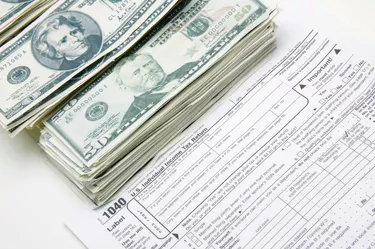
Tax cuts reduce the tax obligations of taxpayers who meet specific criteria, or of all taxpayers in a country. Lower taxes almost always seem desirable from the taxpayer's point of view, and there are arguable benefits of cutting taxes in different areas, but tax cuts also come with a distinct set of disadvantages. Since taxes are fundamentally designed to accomplish good and necessary things in society, any reduction in tax revenue can be said to reduce the amount of good the government can accomplish.
Entitlement Spending
Video of the Day
Programs like Social Security, supplemental security income and food stamps are designed to protect the most vulnerable members of society. These three examples are programs in the U.S., but the same concept applies to similar programs in any country. Governments support social programs like these out of tax revenue, and certain tax cuts can reduce the amount of money available for these programs. While wealthy taxpayers get to keep more of their income after taxes, the poorest citizens receive smaller benefits, or people can begin to fall through the cracks as program budgets shrink.
Video of the Day
Infrastructure Growth
Government taxes support a wide range of vital infrastructure, including roads, bridges and dams. State and local governments build and maintain parks and public recreation areas with tax income. Cuts in taxes pegged to infrastructure spending can reduce the government's ability to perform these vital services. Governments can finance infrastructure projects with bond offerings or other debt, but they need tax income to repay the debts.
Public Servants
Public servants are paid out of tax revenue. Lower tax income can prevent police officers, firefighters, public-school teachers, park maintenance crews and a host of other government employees from increasing their personal income as government salaries increase more slowly, freeze or even decrease. One way to deal with a salary budget shortfall is to reduce the amount of government workers, reducing the number of public servants in communities across the country.
Public Debt
Honest governments use tax revenue to pay their debts. Even if a government shifts debt from one lender to another for decades, the debt still has to be paid with tax revenue, taking the possibility of confiscation and other unethical government acts out of consideration. When governments have less money to repay their debts, their cost of borrowing can increase, since interest can accumulate for longer periods on larger balances. This can actually increase the amount of debt taxpayers have to repay without the government receiving any additional benefits.